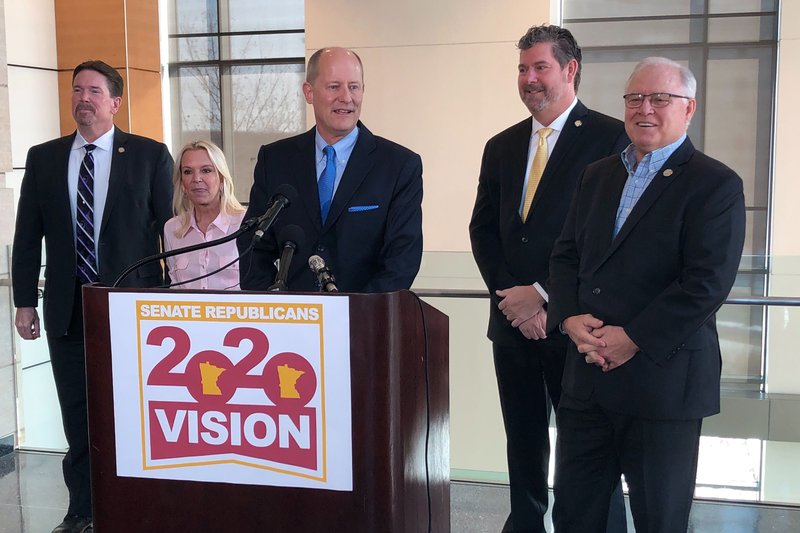Minnesota
Minnesota Senate GOP lays out priorities for 2020 session

ST. PAUL, Minn. (AP) — Eliminating the state’s partial tax on Social Security benefits, reducing violent crime and reforming the state Department of Human Services are some of the top priorities for the 2020 legislative session that the Minnesota Senate GOP majority announced Monday.
Majority Leader Paul Gazelka and other Senate Republicans rolled out their “Vision 2020” agenda at a news conference ahead of the session, which opens Feb. 11. They offered few specifics for tackling crime or fixing the troubled agency, but Gazelka said they would work out the details in the committee process.
“Some things we have pretty firm in our mind where we’d like to go,” he said. “Other things we realize that there needs to be more conversation.”
Gazelka said there’s enough money for tax cuts given that the state is enjoying a projected $1.3 billion surplus.
“I think it’s time to fully exempt Social Security income,” he said. “Let’s be one of those states that doesn’t tax our seniors.”
The main task of the upcoming session is to assemble a public works borrowing package known as a bonding bill. Democratic Gov. Tim Walz last week said his proposal will total around $2 billion. That will include $488 million he proposed Monday for maintaining and upgrading higher education facilities across the state. The House Democratic majority is expected to offer a bigger proposal.
Gazelka said Senate Republicans are committed to working with Walz and Democratic House Speaker Melissa Hortman on passing a bonding bill, but he wouldn’t specify how big it should be. She said the closer it is to the last two that passed the Legislature — the last one was just under $1 billion — the more supportive he’ll be.
On crime, Gazelka said he increasingly hears from people who live outside the Twin Cities metropolitan area who are concerned about whether it’s safe to visit or ride public transit. He said they’ll be looking at getting tougher with felons who illegally possess guns and possibly more police officers.
On health care, he said, Senate Republicans want a drug re-importation program that would allow patients to go to their local pharmacies to obtain prescription medications as cheaply as they could in Canada. He gave few details on how that would work.
Gazelka also said wants to work with Walz to seek greater accountability from the Department of Human Services, citing the bipartisan agreement last session to replace the state’s balky driver’s license and vehicle registration system known as MNLARS.
“Report after report after report from our nonpartisan auditor shows that there is a lot of dysfunction there, and it’s time to clean that up,” he said. “My hope is that the governor will work with us. … That will be one of the most important things that we could get done this session, but it has to be with the governor leaning in with us.”
The majority leader also cited school choice as a priority for reducing the state’s stubborn achievement gaps. But he said Senate Republicans won’t support a recent proposal from former Minnesota Supreme Court Justice Alan Page and Neel Kashkari, president of the Federal Reserve Bank of Minneapolis to amend the state constitution to guarantee all children the right to a quality public education. He said it’s the Legislature’s responsibility to solve the achievement gaps, not the courts.
Gazelka also said legalizing recreational marijuana — a top priority for Democratic House Majority Leader Ryan Winkler — won’t be on the Senate’s agenda this session.
Democratic legislative leaders issued statements criticizing the Senate Republican vision, faulting them for blocking action on Democratic priorities last session, such as insulin prices, gun violence prevention, paid family leave and climate change.







